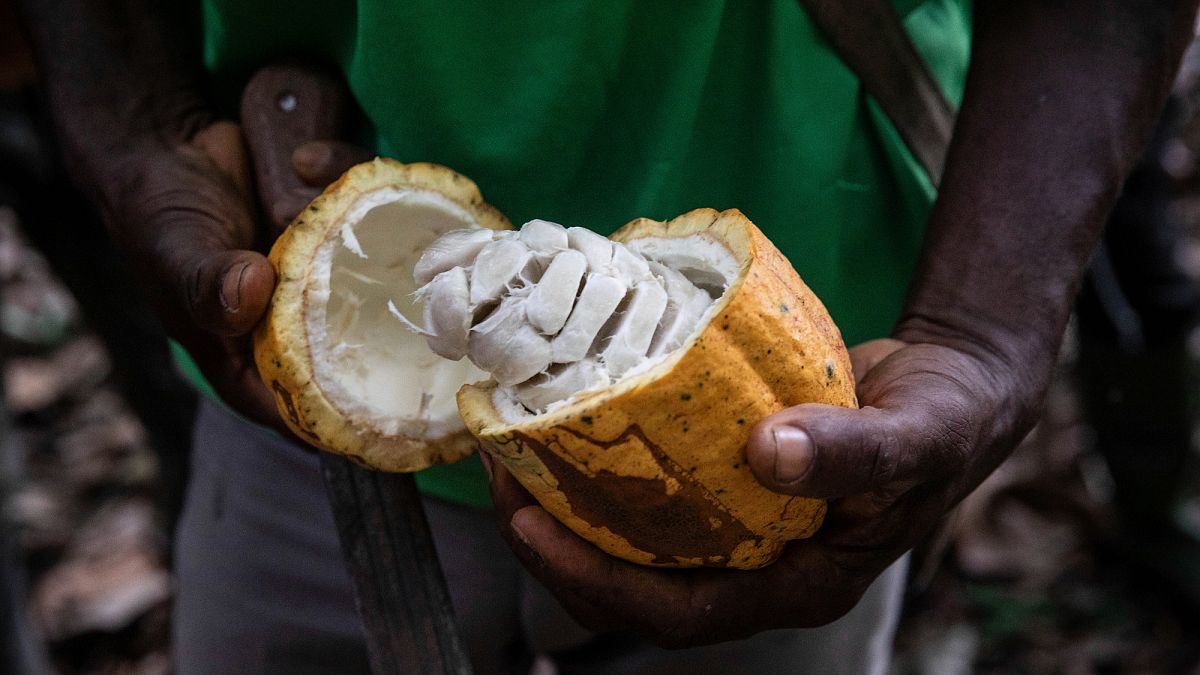ADVERTISEMENT
Producing cocoa takes a major toll on the environment. Farmers will often clear tropical forests to plant new trees, causing significant environmental damage.
A new investigation from The Initiatives for Community Development and Forest (IDEF) Conservation Association, an Ivorian nonprofit organisation, demonstrates the wide scale of such deforestation in Liberia.
The report is urging the EU, the world’s largest importer of cocoa, to take action.
Why are producers turning to Liberia?
The Ivory Coast is the world’s largest exporter of cacao beans. But decades of dependence on the industry have disrupted the environment. Massive deforestation and chemical fertilisers have weakened the soil, pushing producers to look elsewhere.
Deforestation is illegal under Liberian law, but that has not stopped producers from trying to establish new cocoa plantations there. The report also shows that since 2020, more than 38,000 people have been registered in the Grand Gedeh region, which borders the Ivory Coast.
According to Global Forest Watch, in 2024, the country lost 162,000 hectares of natural forest.
‘The scale of deforestation is colossal’
The IDEF report found “massive” levels of deforestation in Liberia because of cocoa production. In the Grand Gedeh region alone, nearly 500,000 hectares of primary forest were cleared and converted into cocoa plantations since 2020.
“The scale of deforestation is colossal,” says IDEF Executive Director Bakary Traoré in a press release. “In the localities we visited, all the families had ceded forest plots ranging from 50 to 300 hectares, compared to 8 or 10 hectares in our previous report last year.”
The report didn’t just demonstrate environmental harm. Investigators highlighted the growing trend of human trafficking, exploitation and child labour. Many younger people are brought to work on cocoa production and land clearing.
Europe’s role in the industry
The European Union is the world’s largest importer of cocoa, and a main producer of finished chocolate.
In 2023, the EU created a new deforestation regulation (EUDR) to curb deforestation. The regulation prohibits European marketing of products that contribute to deforestation, namely coffee, cocoa, rubber, palm oil, soy, beef, and timber.
If effectively enacted, it could help curb cocoa-related deforestation in the region as cocoa produced through deforestation would not be exported. However, this process has been delayed again until December 2026, which the report’s authors call “extremely worrying”.
“Even though Europe could play a key role in saving these forests and helping these communities thanks to its regulations on deforestation, it is failing to do so because of its constant procrastination,” says Traoré.
“While Europe dithers and keeps putting off the implementation of its law, there will be no forests left in Liberia and it will be too late.”
Euronews Green has reached out to the European Commission and The Initiatives for Community Development and Forest for comment.

